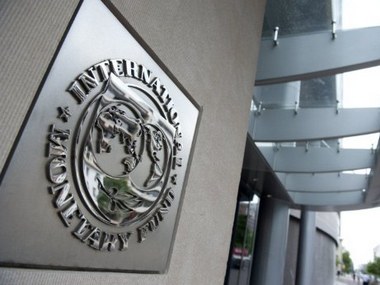Washington: The International Monetary Fund said on Monday it will begin publishing regular analyses of global economic imbalances and exchange rates as part of a growing role, a move that could draw it deeper into difficult international disputes.
Global policymakers have called on the IMF to play a greater role in policing the world economy in the face of the financial crisis and recession of 2007-2009 and the rising influence of emerging economies.
The IMF unveiled its plans to increase monitoring, and report on its findings, just days before a summit of leaders from the Group of 20 major economies.
“Such a publication will help strengthen surveillance and inform the debate on global imbalances, currencies, and policies,” IMF Managing Director Christine Lagarde said in a statement that accompanied a review of the Fund’s surveillance practices.
The IMF’s assessment of exchange rates has long been a thorny issue. The United States has looked to the IMF to pressure China to allow the yuan to rise, while Beijing has questioned the even-handedness of the Fund’s advice.
In the past, China has been so angry with the Fund’s exchange rate views that it blocked the IMF from conducting annual reviews of its economy from 2007 to 2009.
Lagarde said the IMF would “take a broad view of external stability, encompassing an analysis of balance sheets and including coverage of exchange rates, capital flows, and reserve policies.”
The broader approach the IMF intends to take could soothe concerns in Beijing and other emerging economies that the Fund’s focus on global imbalances is primarily about exchange rate levels.
Staff noted that a number of member countries believed that the Fund’s focus was “excessively on exchange rates, distracting from a broader analysis of external stability.”
Lagarde said IMF staff would produce a preliminary report by next spring on methods for assessing external stability.
The lender’s board of member countries broadly supported the plan to expand the IMF’s analysis, although some worried the assessments could be market sensitive and did not see a need for publishing them, it said in a separate statement.
G20 meeting in France
At a 3-4 November meeting in France, the G2O is expected to call for greater IMF monitoring of the global economy in light of Europe’s sovereign debt crisis, concerns about high public debt in the United States and Japan, and overheating pressures in emerging economies.
A US Treasury official said on Monday that greater currency flexibility from China and other emerging economies will be reviewed by G20 leaders this week as they focus on the need for balanced global growth.
“In China and other surplus emerging market economies, allowing exchange rates to appreciate to reflect market forces is the most powerful near-term tool to accelerate the shift to domestic consumption,” Treasury Undersecretary Lael Brainard told reporters.
The IMF said its failure to spot the buildup of risks that led to the 2007-2009 global financial crisis was a “humbling fact” that had to be addressed. It said its regular World Economic Outlook report would pay closer attention to risks, while discussions with authorities would explicitly focus on possible threats to the economy.
The IMF has increasingly put greater emphasis on so-called economic and financial spillovers in which one country’s policies affect others. For the first time this year, IMF analysis honed in on the policies of the world’s top five economies - China, Britain, the eurozone, Japan and the United States - and how they related to each other.
“The objective is to raise the awareness to risks, even in seemingly quieter times,” the IMF said.
In her statement, Lagarde said it was important for the IMF to provide “candid and evenhanded” advice and communicate it clearly to member countries.
The IMF’s internal watchdog issued a scathing report in February that accused the Fund of failing to spot the financial crisis in part because it was “overly influenced by and sometimes in awe” of rich nations.
The issue of whether the IMF is bowing to pressure to rich countries in delivering its advice is still a source of unhappiness among emerging economies.
Reuters


)
)
)
)
)
)
)
)
)



